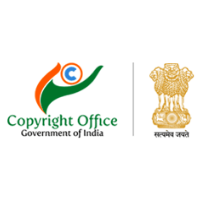What is a Copyright License?
A Copyright License is a legal agreement that grants specific permissions to individuals or organizations regarding the use, distribution, and modification of copyrighted works. It is designed to protect the rights of the original creators or owners of creative works such as books, music, artwork, software, and other intellectual property.
A Copyright License typically outlines the terms and conditions under which the copyrighted work can be used by others. These licenses can be customized and tailored to suit the specific needs of the copyright holder. They specify the scope of usage, duration, geographical limitations, and any restrictions or conditions imposed on the licensee.
A copyright License serves as a legally binding document that establishes the rights and responsibilities of both the copyright owner (licensor) and the person or entity obtaining the license (licensee). It ensures that the copyright owner maintains control over their work while granting certain permissions to others.
Why Copyright License is Required?
A Copyright License is required to establish a legal framework for the authorized use of copyrighted works. Here are the reasons why a Copyright License is necessary:
- Protection of Intellectual Property: Copyright laws grant exclusive rights to the creators or owners of original works. These rights include the rights to reproduce, distribute, display, perform, and modify the work.
- Authorization and Permission: A Copyright License provides explicit authorization and permission from the copyright owner for others to use their copyrighted work.
- Clarity and Certainty: A Copyright License establishes clear and specific terms and conditions for the use of copyrighted works. It outlines the rights granted, the limitations or restrictions imposed, and any obligations or requirements for the licensee.
- Compliance with Copyright Laws: Obtaining a Copyright License ensures compliance with copyright laws and regulations. It demonstrates a commitment to respecting intellectual property rights and following the legal requirements associated with the use of copyrighted material.
- Risk Mitigation: A Copyright License mitigates the risk of unintentional infringement or misuse of copyrighted works. By obtaining a license, individuals and organizations have a legally documented agreement that grants them specific rights and permissions, reducing the risk of unauthorized use or inadvertent violation of copyright laws.
- Commercial Opportunities: A Copyright License allows for the commercial exploitation of copyrighted works. By granting licenses to others, copyright owners can generate revenue through licensing fees, royalties, or other compensation models.
- Collaboration and Innovation: Copyright Licenses facilitate collaboration and innovation by enabling the authorized use and integration of copyrighted works into new creations. They encourage the exchange of ideas, foster creativity, and promote the development of new products, services, or artistic expressions.
Check out the Copyright License Video
What are the Benefits of a Copyright License?
Legal Protection
A Copyright License provides legal protection to the copyright owner by clearly defining the authorized use of their copyrighted work. It establishes the terms and conditions under which others can utilize the work, reducing the risk of unauthorized or infringing use.
Control over Use
The copyright owner retains control over how their work is used. They can specify the permissions granted to the licensee, including the rights to reproduce, distribute, display, perform, or modify the work. This control ensures that the owner's intentions and vision for their work are respected.
Monetization Opportunities
A Copyright License allows the copyright owner to monetize their intellectual property. By granting licenses to others, they can generate revenue through licensing fees, royalties, or other compensation models. This can be particularly beneficial for artists, authors, musicians, and software developers who can profit from the authorized use of their creations.
Expanding Reach and Audience
Granting a Copyright License enables the licensee to legally use and distribute the copyrighted work. This can help the copyright owner reach a broader audience or target new markets that they may not have otherwise reached. It allows for the dissemination and promotion of their work through various channels and platforms.
Collaboration and Partnerships
A Copyright License can facilitate collaborations and partnerships between the copyright owner and the licensee. It allows for the authorized use and integration of copyrighted materials into new works, fostering creativity and innovation. Such collaborations can lead to the development of enhanced products or services.
Preservation of Moral Rights
Copyright Licenses can include provisions that protect the moral rights of the copyright owner, such as the right to be identified as the creator of the work or the right to object to modifications that may harm their reputation. These provisions ensure that the integrity and reputation of the work remain intact.
Who can get Copyright License?
Literary
Artistic
Musical Work
Cinematograph Film
Sound Recording
Work of Sculpture
Document Required for Copyright License
Role of Shamkris and Process of Import-Export Code (IEC) License
Shamkris adopts a results-oriented approach to compliance with mandatory licence requirements in the organization. A simple and guidance methodology help organisation to achieve licence in a timely manner and cost-effective. Shamkris support 100% in advisory, Guidance, Compliance with respect to license requirements to obtain approval.
The License process described below:
- Advisory for the document required
- Preparation of documents as per application & list of documents.
- Application File
- Inspection by the department if required
- Liason department
- Yearly Compliance if Applicable
- Renewal when due
Who can issue the Copyright License?
FAQ
Public Performance License.
Reproduction Right.
Mechanical License.
Synchronization License.
Digital Performance Right in Sound Recordings.
Determine if permission is needed.
Identify the owner.
Identify the rights needed.
Contact the owner and negotiate whether payment is required.
Get your permission agreement in writing.

